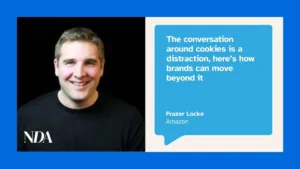By Paul Archer, founder and managing director of brand advocacy platform, Duel
During the course of the Covid-19 crisis, Duel CEO and co-founder, Paul Archer, and his team consulted with over 200 global brands about what it takes to build, maintain and grow a brand in today’s digital age. Here he distils his 5 key takeaways from those discussions.
It’s no secret that there is a new generation of consumers emerging looking for more meaning and purpose from the brands they buy from – trust and authenticity have overtaken the need for cut price and convenience. It is a generation far more sceptical than their predecessors and much less receptive to traditional methods of customer acquisition (i.e. social advertising and influencer promotions).
This means organic word-of-mouth growth, which is effectively growth through people, has never been more important to a brand’s success. So, what does it take to build, maintain and grow a brand in the face of this changing consumer dynamic?
Stand for something
At Duel, it has always been our mission to prove that companies that are purpose (not profit)-led are not only better for society, but are more profitable because they can generate genuine organic word-of-mouth growth via an incredibly loyal network of customers. After all, you can’t build a movement of people without a purpose for them to get behind.
This notion came across loud and clear in our brand conversations and is backed up by numerous studies into consumer loyalty, including research from Cone and Porter Novelli, which revealed that 79 percent of people say they are more loyal to purpose-led brands. And research from EY suggests that purposeful companies outperform the stock market by 42 percent.
Sustainable nappy brand, Kit & Kin, is a great example of this. It is built entirely on the principle of preserving the planet’s natural resources. As a result of its ethos, Kit & Kin has built an extremely loyal following of customers which is in turn leading to impressive growth. But the key thing to remember is that growth was never the sole purpose. The same goes for organic children’s clothing company, Frugi, who use organic cotton and recycled plastic bottles in all of its products. As a result of its commitment to sustainability, it has grown an extremely loyal customer base that shares in its vision.
Be authentic and transparent
Today’s consumers are quick to trust brands that are honest with them and prove they are staying true to their values and to their purpose. They are also just as quick to drop a brand that falls short.
Brands such as Patagonia and Tesla understand this and have experienced long-term success due to their ability to express their values and communicate authentically, while operating in a way that has a positive impact on the world. Because of this, they have been able to grow largely because of their ability to empower a community around them.
Adopt a long-term approach
For too long, companies have taken a short-term approach to their growth – relentlessly seeking profit at the expense of almost everything else, including the environment and their employee well-being. And they bear a great deal of responsibility for the state of the world as it stands. But what came across loud and clear in our conversations with brands research is that the most successful brands of today (and tomorrow) focus on building long term relationships, often at the cost of short-term sales.
lululemon is a great example of this. The billion-dollar global athletic apparel company took a long-term approach to its growth and never sacrificed its values in favour of short term discounting to make a quick profit. Instead, it trusted its customers and wider network of advocates (e.g. fitness instructors, employees, in store associates etc) to drive growth for them. As a result, its customers believe in the company’s vision, share in its purpose and are very quick to share stories and convince their friends and family to buy their products.
This long term approach is summed up by lululemon founder, Chip Wilson, who said: “My philosophy is every dollar you discount takes $10 off the market capitalisation of the company. It is so easy to go on discount and to sell the soul of the brand over a three or four year period and make the numbers look really good…but the CEO has really undermined the value of the brand….if you keep discounting, then at some point people don’t believe in your discount and they don’t buy what it is you want them to buy.”
Focus on a remarkable customer experience
Brands that focus on building a community via their own network of brand advocates (customers, employees, industry partners etc) are those that are going to succeed in the long term. That means they need to command a great deal of loyalty from their advocates and the best way to drive loyalty is by focusing on a remarkable customer experience. In fact, a report from Salesforce revealed 61 percent of consumers are willing to switch brands for a better customer experience.
Brands that ensure the customer experience is incredible throughout every touchpoint and every process ultimately drive growth because their products and experiences consistently deliver on their promises to customers. And this results in a loyal following of brand fans. Look no further than Apple if you need convincing of this point.
Seek constant feedback
Constantly seeking feedback to improve is a vital component of any successful brand in today’s world. That’s because products and experiences improve when customers are willing to share their ideas and feedback with a brand.
Again, lululemon perfectly embodies this. It user-tests all of its new products over and over again before they go into production. Crucially, it uses its own customer base and wider network of advocates to do the product testing for them, making each and every one feel like they are a part of the brand itself.
The most successful brands of today are a community of fans first and a producer of products or a deliverer of services second. The likes of lululemon, Kit & Kin, Frugi and Patagonia have all developed incredibly strong communities of fans (and only as a result, become profitable and fast growing) because they stand for something, they are authentic, they think long-term, they are obsessed with the customer experience and they are always seeking feedback to improve. If you are looking to launch and grow a brand this year, follow the same 5 core principles and you will have the best chance of success.








